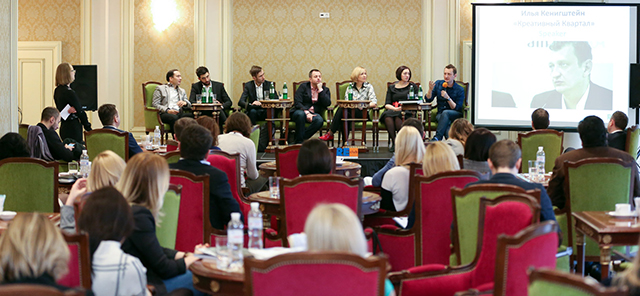
Rapid change of the world, generations and business community’s needs lead to changes in a way people organize their day-to-day work.
As a result traditional business models are fading out. Offices and other commercial real estate as we are used to them are replaced by new formats of working spaces.
Many experts believe that among today’s challenges for commercial real estate are volatile market, disruptive technologies and of course the evolving workforce.
More and more young employees are demanding flexible working space. Millennials, also known as “creative class” have been living their whole life in the world of technology. Staying online 24/7, they, however, are less enthusiastic about 9-5 jobs.
“Millennials don’t need separate offices”, says Dan Spiegel, Executive Vice President, U.S. Operations at Colliers International, - “Privacy is not as important today for them as it used to be. Younger generation shares cars (ZipCar), apartments (Airbnb) and office spaces (WeWork). It’s about new sharing mentality, which makes the millenials feel comfortable and more productive in coworking environment”.
It's getting more obvious today how the habits of the millennials drive the market of CRE. However, it doesn’t have a negative impact on the demand for office space and on no account does it increase vacancy rate. What is important for developers today is just to be flexible and find new formats.
According to Regus, the faster companies realize the way new employees use their office spaces, the faster they will be able to dispose of the offices with high vacancy rates.
CRE owners should rethink their approaches to designing, developing, and redeveloping both new and existing spaces to accommodate the need for dynamically configurable spaces by the end tenant.
More and more examples of sharing spaces are popping up all over the world and this fast-growing trend is spreading all over Ukraine as well.

One of the most striking examples is Ukrainian Expo Center. The project is a state-owned asset, which is redesigned, redeveloped and managed by private company. Its huge territory (about 48 hectare) is subleased by short-term projects and for specific activities both professional and entertaining. The main aim of the management company is to attract more IT companies into the center and turn it into innovation cluster for ambitious startups.
More than one year ago, Kyiv welcomed another project of sharing format – Fedoriv Hub. On the surface, it is an ordinary modern coworking space for the team of Fedoriv Marketing Agency which headcount is about 100 people. However, meeting needs of the market the office space went through transformation. When the working day is over, the office turns into platform for networking and different events. Head of Fedoriv Hub Olga Safina told that the idea of creating Fedoriv Hub came about aimong to attract more customers to Fedoriv Marketing Agency. However, soon space itself started to generate income and as of today Fedoriv Hub broke even operating as an independent project.

Another example of sharing mentality in Kyiv is coworking art-zavod Platforma. The format also combines working spaces for short-term leasees and platform for people gathering during festivals and education events such as thematic lectures, workshops, and professional discussions.

In Lviv the old former tram depot is going to be redesigned into 15 000 sq.m. sharing space, which will combine anti café, coworking area, startup-boxes, master classes and event spaces, meeting room, digital laboratory and other spaces to meet the needs of creative class.